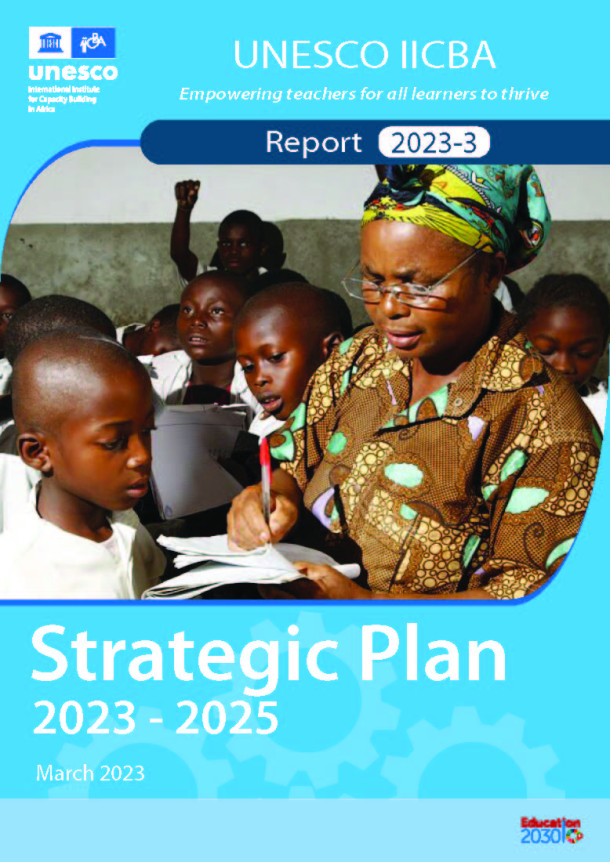
About us
Introduction
The International Institute for Capacity Building in Africa (IICBA), a category 1 UNESCO institute, is based in Addis Ababa. Founded in 1999, it aims to inform education policies, strengthen teacher professional development, and build capacity in education institutions, including Ministries of Education. To provide innovative solutions and scale-up efforts to improve educational outcomes in Africa, IICBA works with a range of partners, including the African Union, UN agencies, other international organizations, development banks, bilateral donors, foundations, teacher organizations, school networks, and non-profits. A brochure on IICBA’s expertise is available here

IICBA highlights
IICBA adopted a new strategic plan in 2023. The Institute’s mission is crystallized in its new motto: “Empowering teachers for all learners to thrive.” IICBA implements this mission through three main lines of action: (1) research and knowledge; (2) policy dialogue and advocacy; and (3) capacity enhancement.
Research informs policy dialogue and advocacy, which in turn help set priorities for capacity enhancement. This flier was prepared for sharing at UNESCO biennial General Conference in November 2023. It provides highlights of IICBA’s work in 2023 along these three lines of action, with a focus on activities implemented from January to October 2023. This flier is available here.

Strategic Plan 2023-25
IICBA’s strategic plan is available here. IICBA’s mission is crystallized in its new motto: “Empowering teachers for all learners to thrive.” IICBA implements its mission through three main lines of action: (1) research and knowledge; (2) policy dialogue and advocacy; and (3) capacity enhancement. Research informs policy dialogue and advocacy, which in turn help set priorities for capacity enhancement.

Governance
The Institute is administered by a Governing Board consisting of eight members chosen for their eminence in fields relevant to education and for the aims of the Institute. Members are appointed by the Director-General of UNESCO as follows: (i) Five members appointed for a period of four years having regard for equitable geographical, linguistic and gender distribution (one of the members is a national of the host country, Ethiopia); (ii) Three members from regional organizations in Africa designated for a period of four years, on the following basis – the African Union Commission (permanent appointment); the Association for the Development of Education in Africa (permanent appointment); and the African Development Bank (AfDB) in rotation with the Economic Commission for Africa (ECA).

